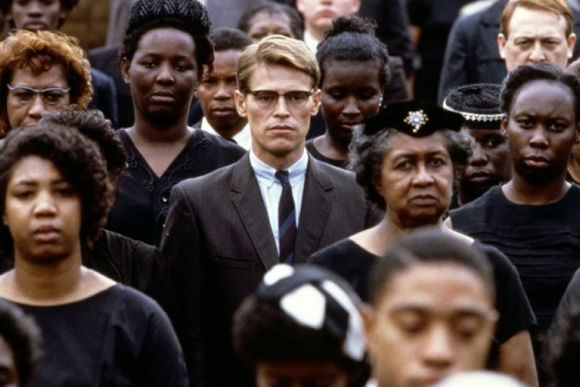You could pick just about anything to get ticked-off about the Academy Awards. This year I’m going with the number of films nominated in the Best Picture category. There are nine of them.
That’s an awful lot.
Obviously, this has nothing much to do with the quality of the films and everything to do with the marketing of the films. In order to feel invested and fully participatory in the event, we, as audience, go out to see as many nominees as possible– even if the movie happens to be Lincoln. It’s kind of like Black Friday for movies, only without discounts. What’s particularly funny about this cynical display is that one of the prime motivators for the audience in seeing the movies is to simply confirm that we have MUCH better taste than the Academy. In fact, we will later Live-Tweet about what a horrible, self-congratulatory and vulgar spectacle it all is. But of course, we end up paying them for the privilege of doing so, rendering the ironies so plentiful that it actually gets tiring to think about them.
No matter, this year, the movie that most people are expecting to win for Best Picture is Argo. The film, for those of you who haven’t seen it, is based on the rescue of six US diplomats during the Iran Hostage Crisis of 1979.
Personally, I think that the movie is fine and little more. The one thing that really stood out for me was the opening, a graphic novel kind of prologue in which the historical background for the movie was efficiently and elegantly set. I’d give them an award for that, but for the rest?
Meh.
But Argo probably will win.
Here’s why:
First off, the Academy has always favoured the historical, and this one is appealingly set in an era that all Academy members can vividly recall (they’re at the center of history!)– so for them the movie is kind of like flipping through an old high school yearbook. It’s a story told through the experience of white people, about the vulnerability of white people isolated by impenetrable dark-skinned people, getting rescued by white people.
In short, Argo champions idealized versions of the audience that’s watching the film. This is a relatively typical Oscar construct though and should be considered practically boilerplate. Where Argo really scores with Academy voters is in embedding Hollywood into the core of the story.
In Argo, for this whole scheme to work, the CIA has to recruit Hollywood to make a fake film, one that will serve as cover so that the hostages can be rescued. Suddenly, people working in Hollywood get to see themselves in a kind of romantic, even noble light. Competent, funny and successful, they have brash, cynical exteriors, but pure hearts. Working in secrecy behind the scenes and out-smarting everyone they meet with impressive sangfroid, they’re the coolest people in the room—the work they’re doing important, rather than self-serving and shallow. And this speaks directly to the Academy voter, allowing them to imagine themselves in the best possible light, so yes, if I had to bet, I would bet on Argo for Best Picture.




Comments
One response to “2013 Academy Awards”
Nate Silver’s Oscar predictions from 538:
http://fivethirtyeight.blogs.nytimes.com/2013/02/22/oscar-predictions-election-style/